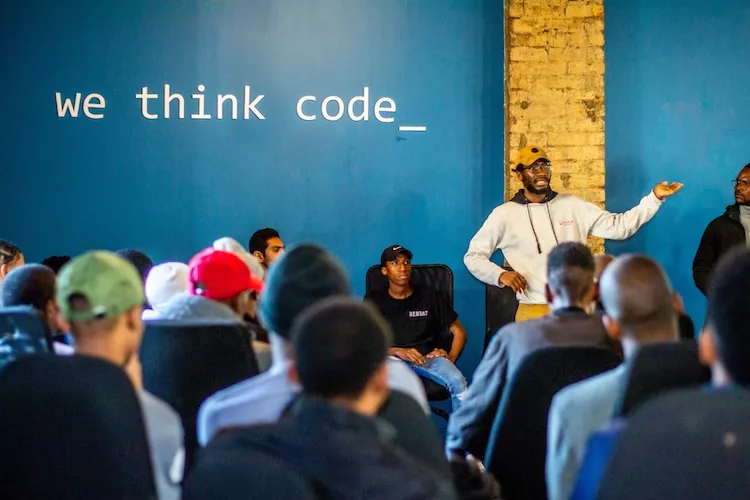Quick Summary:
- WeThinkCode secures $2 million from Google.org to train 12,000 individuals in AI skills across South Africa and Kenya.
- The programme targets underrepresented groups, focusing on youth from low-income, peri-urban, and rural communities.
- Training is free and accessible to both technical and non-technical learners, covering AI tools, workflows, and practical applications in various industries.
- WeThinkCode will partner with top companies to offer real-world work experience and improve job placement opportunities for participants.
Africa’s growing digital economy is facing a major challenge. The issue isn’t a lack of ambition—it’s a shortage of skills.
Recent industry reports reveal that 90% of companies across the continent struggle to innovate and complete projects due to limited AI expertise.
In a bold move to tackle this skills gap, South African tech academy WeThinkCode has secured a $2 million (R35 million) grant from Google.org. This partnership aims to improve AI readiness across Africa.
A Training Programme Focused on Inclusion
Unlike many expensive, exclusive tech training programmes, this initiative is designed to be accessible and inclusive.
WeThinkCode plans to train 12,000 individuals in South Africa and Kenya. The academy is focusing on young people from low-income, peri-urban, and rural communities—groups often left out of the digital revolution.
Free AI Courses for Technical and Non-Technical Learners
The training will be completely free and offered as an extracurricular course.
It will cover 40 to 80 hours of learning, designed for both technical and non-technical participants.
- One training stream will focus on 6,000 aspiring software engineers, helping them build skills in AI tools and workflows.
- The second stream will prepare 6,000 early-career professionals in industries like health, education, and legal services to apply AI in everyday tasks.
Building AI Skills Across Industries
This approach does more than just train coders. It aims to expand AI awareness and skills across Africa’s workforce.
By improving AI literacy, the programme can help industries adopt automation and use data for better decision-making.
Training will be available both in-person and online. To make learning easier, the courses will be adapted into local languages where needed.
Shaping Africa’s Digital Future
Nyari Samushonga, CEO of WeThinkCode, described the programme as essential for Africa’s future.
“AI is redefining the future of work, and without intervention, Africa risks being left behind,” she said.
“This programme makes sure that young people—no matter their background—can help shape Africa’s digital economy.”
Connecting Learners to the Real World
To give students hands-on experience, WeThinkCode will partner with companies in financial services, telecoms, and consulting.
These partnerships will expose learners to real-world work environments and improve their chances of getting jobs.
Haviva Kohl, Senior Programme Manager at Google.org, stressed the importance of the project.
“AI is a transformative technology, and it’s critical that the benefits are accessible to all,” she said.
A Path to an Inclusive Digital Economy
As the world rapidly shifts to AI-driven solutions, initiatives like this highlight a key lesson:
Africa’s success in the digital economy depends on both innovation and inclusion.
With the right training and support, the next generation of AI talent may not come from elite labs—but from classrooms in Nairobi and Johannesburg.



















Leave a Reply